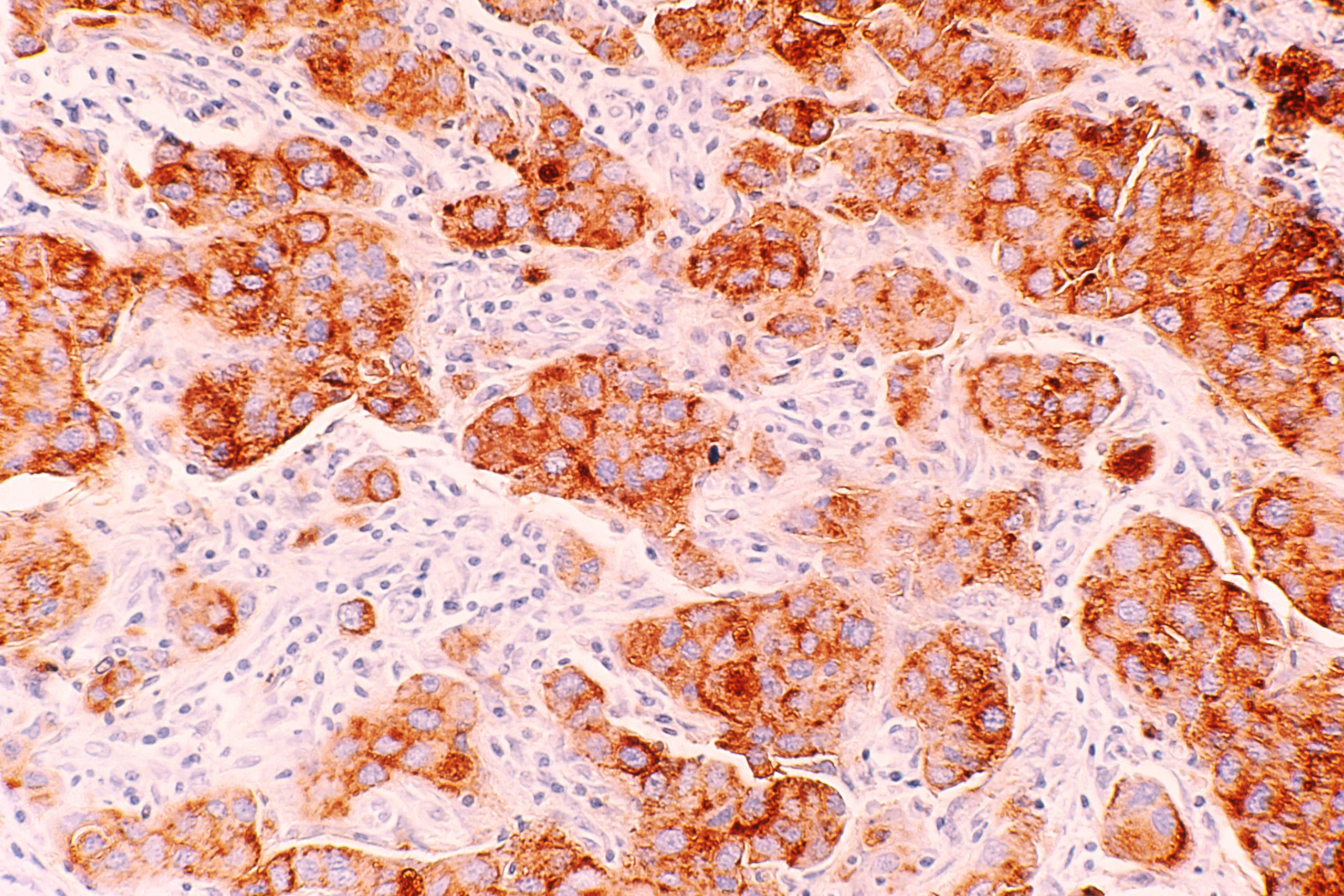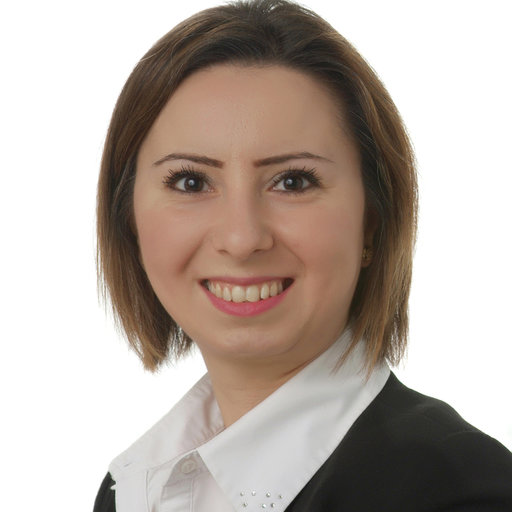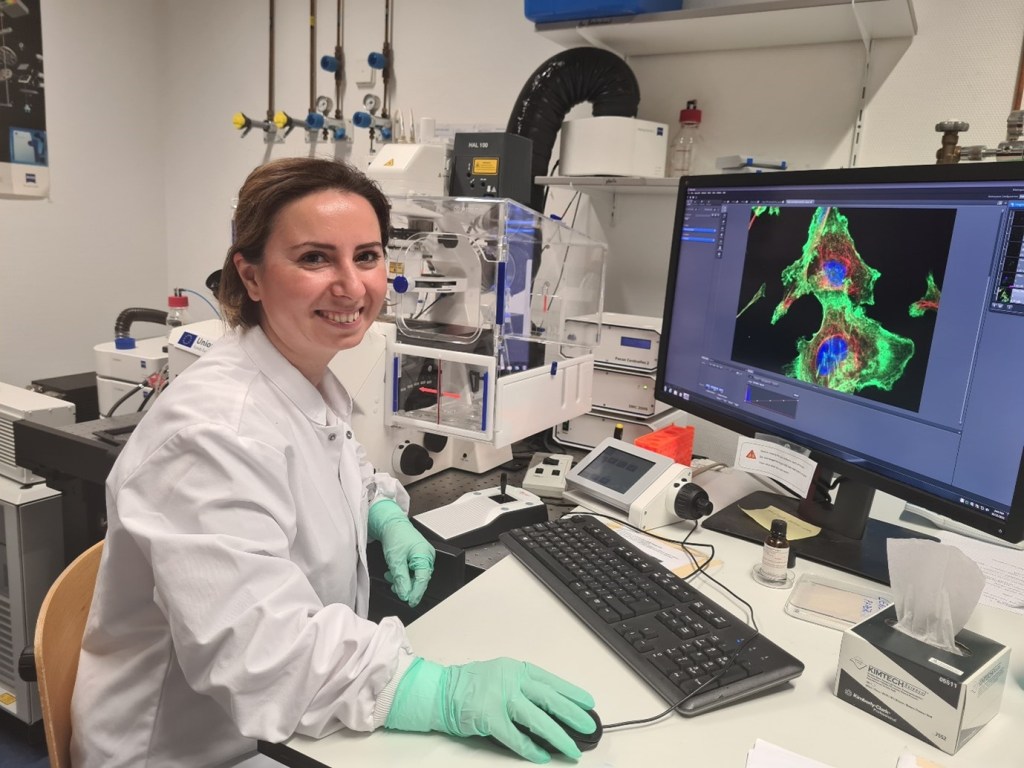In conversation with our young researchers: Dr Takouhie Mgrditchian
22 October 2021

Breast Cancer.
Breast cancer is one of the leading causes of cancer deaths in women worldwide. In most cases, breast cancer patients do not die from the primary tumour itself, but from metastasis to different organs.
Unfortunately, metastatic breast cancer cannot be cured but can only be treated to extend patient’s life. Therefore, a better understanding of metastatic process is an urgent need to improve patients’ treatments and to pave the way for a cure.
Dr Takouhie Mgrditchian is a postdoctoral fellow at the Cytoskeleton and Cancer Progression unit at the Luxembourg Institute of Health. Her research work focuses on Breast Cancer invasion and metastasis.
Understanding the metastatic process to improve patients’ treatment
Breast cancer develops when abnormal cells in the breast begin to divide uncontrollably. Metastatic breast cancer is the most advanced stage of breast cancer.
When breast cancer is diagnosed, the aim of the current treatments is usually to remove the entire tumour. But this is no longer possible if it has spread to other parts of the body, i.e. metastatic breast cancer. The aim of the therapy is to keep the patient’s general health and quality of life as good as possible for as long as possible.
Metastasis refers to cancer cells that have spread to a new area of the body. Breast cancer that spreads to other parts of the body is still considered breast cancer.
In her research work, Dr Takouhie Mgrditchian is striving to get a better understanding of metastatic process to pave the way for new therapies able to prevent or reduce cancer cell dissemination.
Research to help others and patients
Dr Takouhie Mgrditchian’s research journey started in the ” Viral Infections and Comparative Pathologies ” Lab in Lyon, France. As part of her master’s thesis, she used Drosophila Melanogaster as a research model to study the passage of retroviruses from somatic cells to germ cells, i.e. how an exogenous virus becomes endogenous and is transmitted from generation to generation.
Drosophila Melanogaster, a.k.a. the fruit fly, is used as a model organism to study disciplines ranging from fundamental genetics to the development of tissues and organs. According to various studies, the Drosophila genome has many similarities to that of humans.
The Franco-Syrian biologist joined Research Luxembourg as a PhD student, focusing on the role of targeting autophagy in enhancing the anti-tumour immune response.
Upon completion of her PhD, she joined the “Acute and Chronic Cardiovascular Insufficiency” INSERM lab in Nancy, France as a postdoctoral researcher, where she worked on vascular ageing. Now, she is part of the Cytoskeleton and Cancer Progression team at the Luxembourg Institute of Health headed by Dr Clément Thomas and focuses on Breast Cancer invasion and metastasis.

“Contributing to improve the quality of life of people, especially patients, is a driving force. This vocation gives meaning to my life. Moreover, doing research satisfies my curiosity and gives me the opportunity to learn continuously”
Dr Takouhie Mgrditchian
Why Luxembourg as a research destination?
For Dr Takouhie Mgrditchian, Luxembourg has excellent research infrastructure and state-of-the-art research facilities.
While her postdoctoral position is currently supported by télévie, she has always accessed funding to support her research. As a matter of fact, her PhD programme was funded by the Luxembourg National Research Fund.

“I have seen since joining Luxembourg how the country supports research and how it is continuously developing in this field, while maintaining its excellent research quality.”
Dr Takouhie Mgrditchian
She was also successful in being selected for the Caloust Gulbenkian Foundation’s Global Excellence Scholarship, which supported her training and participation in various conferences throughout her PhD.
Stronger together: Collaborations make research more powerful
In Luxembourg, researchers are highly encouraged to collaborate. Since she has been at the Luxembourg Institute of Health, Dr Takouhie Mgrditchian has had the opportunity to collaborate with researchers from other Luxembourg research institutions such as the University of Luxembourg and the Luxembourg National Health Laboratory.
“I work not only with biologists but also with researchers from different fields such as statisticians and bioinformaticians.”
Dr Takouhie Mgrditchian
More about the Cytoskeleton and Cancer Progression group in Luxembourg Institute of Health.








